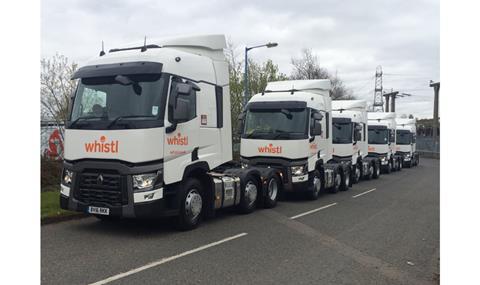
Whistl believes its ability to offer customers a one-stop shop from mail through to parcels and fulfilment services will ensure its future success as the mail market stagnates.
Presenting its full-year results for the year to 31 December 2017, the downstream access (DSA) mail specialist, which was subject to a management buyout in 2015, declared it had a significant opportunity to increase market share in parcels thanks to the explosion in e-commerce.
In their statement to the accounts, the company’s directors stated that “the UK parcel market has shown significant growth in value and volume in recent years, which has largely been driven by e-commerce”.
Citing analysis that suggests the UK market has increased by nearly 63% since 2012, from £6.2bn in 2012 to more than £10bn by value in 2016, Whistl added that the market is expected to exceed £13bn in 2021.
“No single carrier offers the full range of services from economy to DSA to premium parcels, resulting in the need for multi-carrier relationships with high complexity and additional cost.
“This is where Whistl steps in, as we offer an integrated one-stop broker delivery solution for large letters, packets and parcels for multi-channel retailers,” the directors said.
“We are well positioned to acquire new customers and continue to cross-sell within our existing customer base,” they added.
Read more
- Whistl appoints new operations director
- Whistl profit up 145% in first full year after separation from Post NL
- Whistl to consolidate Leeds and Warrington depots into new Bolton hub
In 2017, and to facilitate its e-commerce growth plan, the operator spent £1.37m acquiring the remaining shareholdings in what is now Whistl Fulfilment and Whistl Fulfilment (Farnborough).
The operator already fulfils orders for the likes of Long Tall Sally, Oliver Sweeney, Warner Bros Studios and the National Trust. It sees huge potential to attract further business from small- to medium-sized retailers that would rather be selling their products than spending time and money arranging delivery of the goods to customers.
Whistl’s turnover for the year increased 3.1% to £544.6m driven by growth in parcels and international work. Daily mail volumes reduced 0.4% in the period.
Intense competition in the mail and parcel market along with the return of inflationary pressures, and an exceptional cost of £1.2m regarding the transfer of its Leeds and Warrington hubs into its new, larger Bolton facility, knocked annual profit.
Pre-tax profit decreased by 42% to £4.9m compared with £8.4m a year ago.













